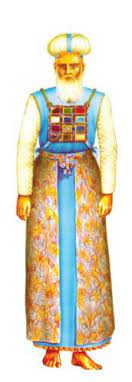How despondent Pinchas could have easily felt when his grandfather, father and uncles, and all their future descendants, were chosen by Hashem to be cohanim (Shemos, 28:1). He himself, having been born before that moment, was not among that role’s grantees.
He probably did not mind, though. Because his subsequent action (at the end of parshas Balak), the killing of Zimri and Cozbi, could only be a proper act – and Hashem confirmed its propriety – if it had been committed by an utterly selfless person. One needs a sense of self to feel slighted.
How ironic, though, is the fact that, had Pinchas actually been a cohein at the time of his violent act, the act, justified though it was, would have rendered him unable to serve in that special role. Because a cohein who has killed a person, even properly or accidentally, is disqualified to serve as a cohein.
Hashem made Pinchas a cohein only after – in fact, because – of his act (Zevachim 101b). Pinchas’s ultimate status as a cohein, in the end, depended on his having been “left out” when his relatives were granted that status.
Few of us are truly selfless, and many of us are easily slighted. When we are, we do well to recall Pinchas’ experience. The Shulchan Aruch (Orach Chaim 230:5) actually states as halacha that “One should be accustomed to say: All that Hashem does is for the best.”
Sometimes we are fortunate, as Pinchas was, to live to see how that is true.
But even when we don’t, it still is.
© 2021 Rabbi Avi Shafran
